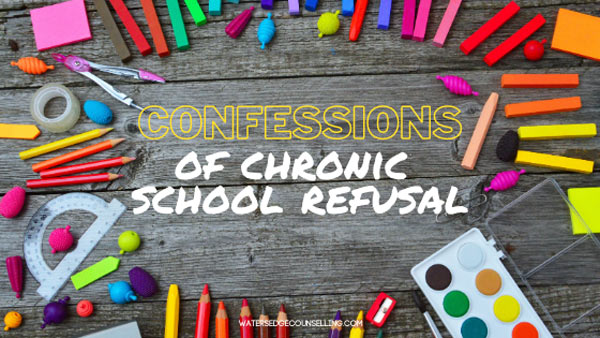
School is coming back! And while parents and guardians may be shouting for joy, students don’t always feel the same way. It is normal for a sense of anxiety, fear or even dread to come up for some kids and teenagers – and I relate.
My high school years were some of the hardest of my life. Rather than looking forward to seeing my friends every day, I woke up with a ball of elastic in stomach. I would become physically ill, anxious about my subjects, my appearance, my friends – even the way I breathed.
My anxiety and depression spiralled, and eventually I was so bound by mental illness at age 13, I couldn’t attend school – let alone get out of bed. I have a distinct memory of my mother saying that we would go to the doctors for help.
The fact that I did not have to attend school that day has stayed with me. It showed my mum didn’t see my school refusal as arrogance or laziness, but as a cry for help. In this way, I learned very quickly that my parent’s influence and the actions of my teachers had a significant impact on my recovery. And this meant that I was not only able to get better, but also graduate high school after finally attending school full time in Year 12.
Some years later when I worked in a school, I saw students going through the same struggles. Due to my experience, I learned to support their families rather than judge them for their student’s apparent ‘sick days’.
If you have a student who also has plenty of ‘sick days’, then I’d like to give you some hope, or tips, as someone who experienced constant school refusal:
-
-
Let your student know their feelings are valid.
Affirm that they are not making it up or over reacting. And highlight that while this is not an excuse to miss school long term, you will work together to find new ways to participate in it.
-
Don’t force them to get to school – work towards a long term goal when they are ready for it.
This is hard, because there is a fine line between honouring your child’s pain and having them regress in their education. It’s best to take it on a case-by-case basis. And sometimes, this means readjusting the end goal – shifting subjects, learning a trade, or just aiming to pass so they can graduate.
-
Reinforce education as a healthy aspect of their life.
Your priority is your child’s health, followed by their education. So as their health improves, set bigger goals regarding school attendance. They need this to reach graduation and mature into adulthood.
-
Approach the school and make them aware of the situation.
Teachers, chaplains, and social workers are all on hand to help your family through this. Tell them about your situation, and ask how they can help. Thanks to my teachers, I never fell behind at school – they either modified my workload, or I worked from home.
-
Seek outside help.
While the support of my family and school were fundamental in my recovery, having a counsellor who could support and challenge me was a game changer. As a parent or guardian you do not have to face this battle alone – so please ask for help.
-
Does your child struggle to get to school? Do you feel overwhelmed or unable to help them? Contact Colleen on 0434 337 245 or Duncan on 0434 331 243 for a FREE 10 minute consultation on how we can best help you or book online now.
Leave a Reply